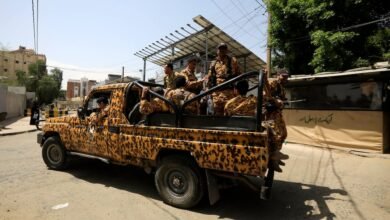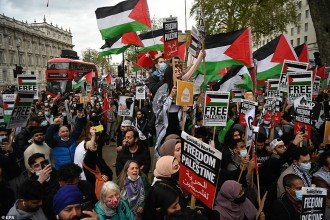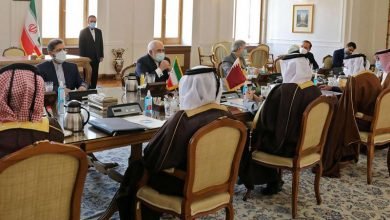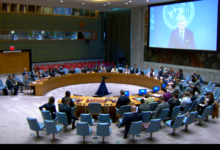US pressures Houthis to accept ceasefire plan in Yemen
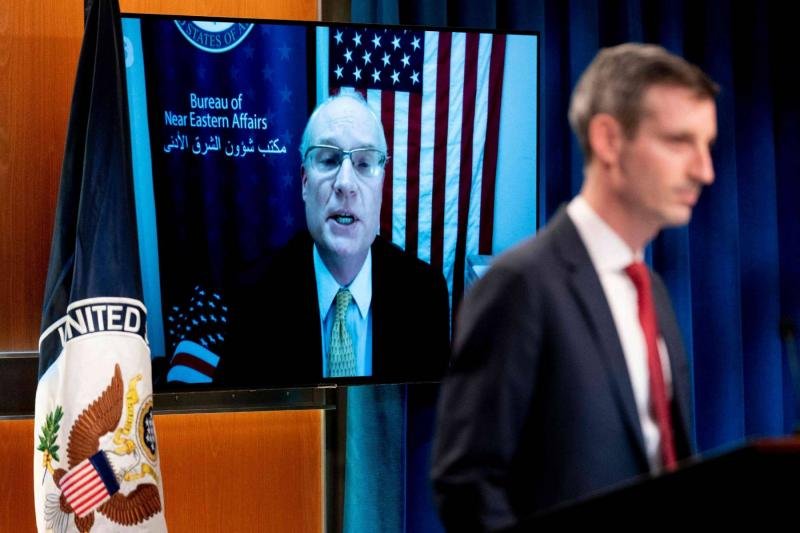
SMA NEWS – Washington
Yemeni government and Saudi Arabia said to have given their approval for the plan Western criticism of the Houthis has intensified in recent days in conjunction with statements by US special envoy to Yemen Timothy Lenderking, in which he disclosed that a ceasefire plan has been submitted before the reluctant leadership of the Houthi group as a basis for a political settlement.
A “sound plan” for a nationwide ceasefire in Yemen has been before Houthi leadership for “a number of days,” but it appears the group is prioritising a military offensive to take Marib, Lenderking, said on Friday. He warned that Yemen “will spiral into greater conflict and instability” without ceasefire progress.
Yemeni political sources said that the shift in the US and European positions towards the Houthi rebels indicates prior approval by the Yemeni government of the plan mentioned by the US envoy.
The sources confirmed that the plan includes the final version of the “joint declaration” prepared by the UN envoy to Yemen Martin Griffiths.
The Yemeni sources told The Arab Weekly that Lenderking was able to secure the approval by the Saudi-led Arab coalition and the internationally-recognised Yemeni government of Griffiths’s plan for a comprehensive ceasefire in Yemen, before handing it over to the head of the Houthi negotiating team, Mohammad Abdul-Salam, whom he met in the Omani capital, Muscat.
They added that recent UN and international mediators in Yemen have come to the conclusion that the ball is now in the Houthi militias’ court.
The Houthis are the only party in the Yemeni war that still refuses to make any concessions and continues to escalate its military hostilities, especially in the Marib governorate.
The Houthis described the US proposal for a ceasefire as a “conspiracy” that reflects the vision of the United Nations and Saudi Arabia.
The Iran-backed militias want an “end to the war” before they can accept the “ceasefire.”
Abdul-Salam said, “If they were serious about stopping the war and the siege, they would have declared the end of both in earnest, and that we would have welcomed.”
He added that the US truce initiative stipulates that flights from Sana’a airport must obtain prior permits from the coalition, and that Yemeni passports could not be issued by Sana’a.
The US administration was the target of intense criticism after rushing to remove the Houthis from the list of terrorist organisations. Many political analysts in the region said the US decision sent the wrong message to the Houthis encouraging them to ratchet up their violent behaviour.
During the past few days, the US and European powers have intensified their criticism of the Houthis whom they threatened with additional sanctions if they continued to escalate their military hostilities and reject ceasefire initiatives.
A joint statement issued by the governments of France, Germany, Italy, the United Kingdom and the United States condemned “the sustained Houthi offensive on the Yemeni city of Marib and the major escalation of attacks the Houthis have conducted and claimed against Saudi Arabia.”
“Their (the Houthis’) determined attack on Marib is worsening an already dire humanitarian crisis”, added the statement.
The signatories to the statement emphasised that their “renewed diplomatic efforts to end the Yemen conflict, in support of the UN Special Envoy, with the support of Saudi Arabia, Oman, and the international community, offer the best hope for ending this war.”
“We urge the Houthis to seize this opportunity for peace and end the ongoing escalation,” they said.
They also reiterated their “firm commitment to the security and integrity of Saudi territory, and to restoring stability and calm along the Saudi/Yemeni border.”
In an indication of the growing international attention to the Yemeni war, the official Yemeni news agency said that Yemeni Foreign Minister Ahmed Awad bin Mubarak received, Friday, a phone call from the European Union’s High Representative for Foreign Affairs and Security Policy Josep Borrell, during which they both discussed “developments in Yemen and efforts to achieve peace, restoration of security and stability and an end to war. ”
The agency quoted Ben Mubarak as confirming the government’s continuation “of its endeavours to achieve peace, support the efforts of Griffiths and deal positively with all sincere international efforts to reach a political settlement.”
International moves regarding the Yemeni issue have coincided with shifts in the military situation on the ground after the momentum of the Houthi offensive towards Marib was lost. The Houthis are reported to have suffered huge losses as a result of Arab coalition airpower being introduced on the frontline and the bombing of Houthi militia supplies. There were also reports of the Yemeni army making progress in some of the axes of the Taiz and Hajjah governorates.
Yemeni political researcher Faris Al-Bail told The Arab Weekly that the Yemeni National Army should have made its move earlier, or at least continued to press on, and not to have halted its activities based on considerations including the political negotiation debate, which granted the Houthis additional areas under their control.
Bail pointed out that the ebbing of military activity on the part of the internationally-recognised government during the last period had tempted the Houthi militias to try to achieve a decisive victory by controlling Marib.
But the result was the opposite of what they hoped to achieve as “the anti-Houthi forces regained their unity after sensing danger.”
“Their movement was in Marib, Taiz and Hajjah, and we may witness important military movements in other regions as well.”
Bail added that “the defeat of the Houthi militia is neither difficult nor remote if there is movement on all military fronts.”
He went on to say, “All of this depends on the pace of military moves and political – military fusion. Even if it is for a brief period of time, there should not be a decision to count again on political solutions, until a different military reality is imposed on the ground in favour of the legitimacy camp.”
The head of the Fanar Center for Policy Research, Izzat Mustafa, said the political and military moves show “all parties to be fighting their last battles in this round of the war and attempting to reposition or redeploy their forces in anticipation of any political settlement that the international community might try to impose.”
Mustafa considered that the lack of clarity about the US endgame to end the war in Yemen in addition to the faltering of Griffiths’ plan could push Washington to fall back on the previous plan launched by former US Secretary of State John Kerry. He noted that former UN envoy Ismail Ould Sheikh built his vision for a political solution on that plan but the document embodying that vision could not be signed during the Kuwait 2016 consultations.
Mustafa added that the most prominent development at this juncture is the movement on the Taiz and Hajjah fronts. Although this movement appears to have achieved partial progress, it all amounts to a repositioning move in “preparation for the post-political settlement military conflict where the Muslim Brotherhood forces in Yemen confine the showdown exclusively between them and the Houthis.”
“Regarding the fifth military region in Hajjah governorate, north of Hodeidah governorate. I do not think that the front’s movement there is really serious, especially since fighting the Houthis on that front had stopped for more than three years with no reason. It seems more like propaganda than real war, ” he added.


